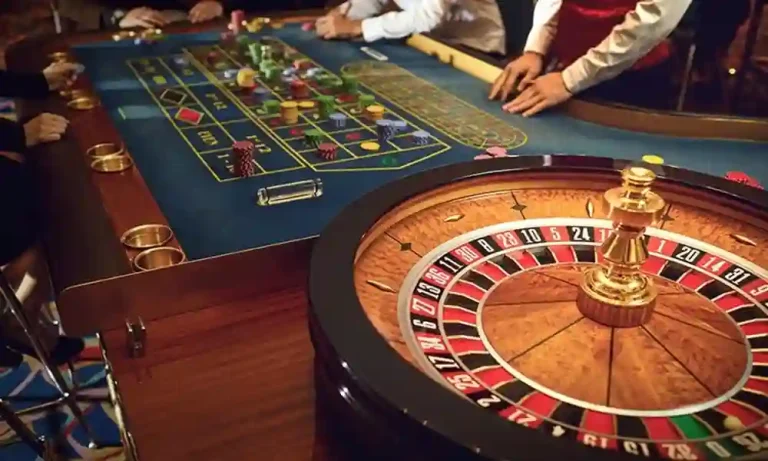
A casino is a place where people can play games of chance and win prizes. It was once a glamorous destination for European royalty and aristocrats.
Nowadays, casinos are often glitzy, modern, and expensive. Many also feature restaurants, spas, and hotels. They use technology to prevent cheating and theft.
They are a business
Casinos are businesses that earn money by providing gamblers with a variety of gambling games. They use various strategies to attract and keep customers. They also promote their businesses to the public through advertising and word-of-mouth. Some 우리카지노 also offer a variety of food and drinks to encourage their customers to spend more money.
Most casinos have a mathematical advantage over the players, and it is rare for a casino to lose money on its operations for even one day. These advantages are often referred to as the house edge or expected value, and they vary between games. Some are “banked,” while others, such as poker and roulette, are “percentage games.” The house edge is calculated by the percentage of funds returned to the players, excluding winnings.
Casinos use technology to monitor and supervise their games, and they have special video cameras and electronic devices to track betting chips. They can also electronically monitor wheel spins for anomalies and warn dealers of any statistical deviation. The use of these systems has helped casinos minimize the risk of cheating by reducing the need for human supervision. In addition, casinos give their best customers free items (called comps) such as rooms, meals, and show tickets.
They are a tourist attraction
A casino is a tourist attraction for many people, as it provides them with a unique form of entertainment. Besides gambling, casinos also offer other activities like live theatre and concerts. They also offer various restaurants that provide a variety of food and drinks. In addition, they are often surrounded by beautiful architecture and landscaping.
In fact, some countries have made casinos their primary focus to attract tourists. In Macau, for example, the gaming industry is a major part of the economy and the government strives to promote it as more than just a place to gamble. To do this, they have introduced new facilities and improved their existing ones. They have also increased their membership privileges and private rooms for their most affluent clients.
The casino industry is a large contributor to the local economy, as it provides jobs and brings in tax revenues. It also promotes tourism and stimulates other industries in the area. For example, hotels and other tourist attractions can benefit from casino tourism because it provides them with a steady stream of visitors. This is especially true in a city that has several casinos in close proximity.
Local workers are usually one of the first beneficiaries of casino tourism, as they provide essential services like security, customer service, dealers, and accounting. Moreover, a thriving casino environment usually brings in other business ventures such as bars and clubs. All these businesses contribute their quota to the state’s coffers.
They are a source of revenue
Casinos are a major source of revenue for state and local governments. Taxes on gambling are typically earmarked for social programs, such as senior and disabled services and education. In addition, many casinos offer free or discounted travel packages to their patrons. These perks are known as “comps” and are an important part of casino marketing strategy.
In addition to casino gaming, most casinos also have a wide variety of restaurants, night clubs and hotel rooms. Casinos may also rent out their retail space for use by vendors such as clothing stores, souvenir shops and high-end jewelry and liquor shops. This retail space can generate significant income for the casino, especially if it is in a high-end location.
During the 1970s, Las Vegas casinos promoted themselves as a destination for travelers, and this marketing strategy has helped them increase revenues. In the 1980s, casinos opened on American Indian reservations and in riverboats. Since then, many states have legalized casino gambling, and the industry has expanded to include racinos on racetracks.
Despite the popularity of casino gambling, critics argue that the industry is harmful to communities. For example, the crime rate in Atlantic City remained high even after casinos moved to new locations. Research has shown that casinos attract a criminal element to their immediate neighborhoods, which can lead to increased property and violent crimes. In addition, they divert resources from other business activities and have a negative impact on local economies.
They are a place to gamble
Casinos are gambling facilities, but they also serve as entertainment centers. Many casinos offer a variety of dining options, including anything from cheap food malls to 24 hour diners and Michelin starred restaurants. They may also have bars and nightclubs featuring musical shows, circus performances, and vaudeville. In addition, they often host visiting gigs and residencies.
Gambling in some form is believed to predate civilization, with primitive protodice and carved six-sided dice found at the most ancient archaeological sites. However, the casino as a place to find a variety of ways to gamble under one roof did not appear until the 16th century, when a gambling craze swept Europe. Italian aristocrats often held private parties at venues called ridotti, where they could play games of chance without worrying about legal consequences.
The modern casino offers a number of incentives to keep its patrons gambling as long as possible, and these include free spectacular entertainment, upscale living quarters, reduced-fare transportation, and free hotel rooms. Casinos are also known for their use of bright and sometimes gaudy colors, which create an energizing and cheering environment.
Casinos are located around the world, with the United States holding the most. During the 1980s and 1990s, they began appearing on American Indian reservations, which are not subject to state antigambling laws. Casinos are also popular in Puerto Rico and Cuba.






